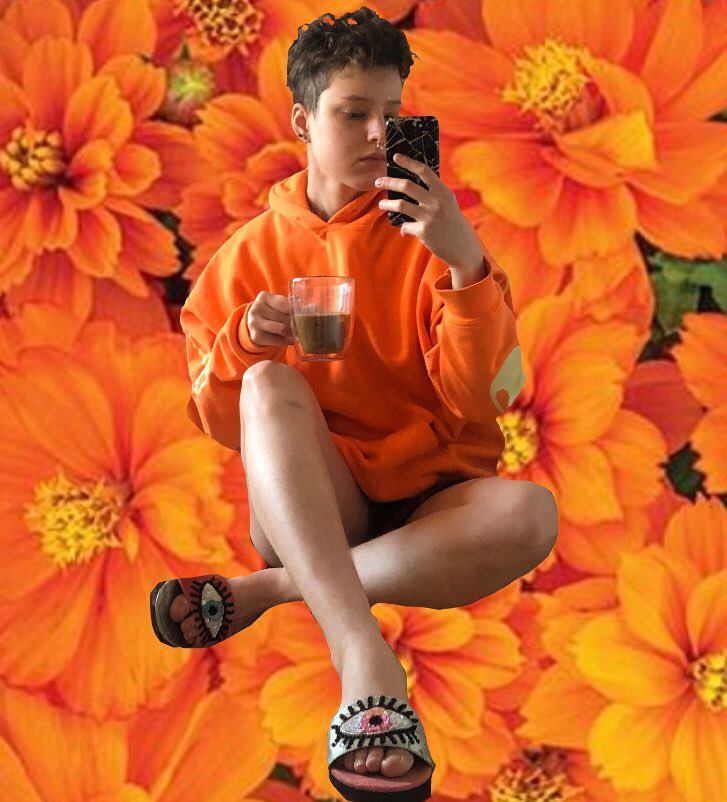Written by Billy Hani.
Art by CJ Strauss.
The dictionary definition of the word misgender is ‘to refer to someone (especially a transgender person) using a word, especially a pronoun or a form of address that does not correctly reflect the gender which they identify with’.
For the purpose of this article, I will use misgender to mean the deliberate and intentional act of invalidating and erasing a transgender person’s gender identity by using their dead names and wrong pronouns (which were used on them with the gender assigned to them at birth).
Disclaimers:
- This is particularly for people who intentionally use dead names and wrong pronouns for trans* people. People who deliberately go out of their way to try to hurt trans* people and to make us feel small and invisible.
- The view expressed herein is also a personal stance and other trans* people might not feel the same way.
- This is not a reason for you to refer to me, or any other trans* person, by our dead names or wrong pronouns. Address trans* people correctly and if you are unsure about someone’s pronouns, ask them.
Names and pronouns are important. Otherwise they would not be an issue. Names and pronouns communicate who we are to others, and in a way they guide how we interact with each other. Names and pronouns make us feel seen, and it is valid for everyone to want to be referred to correctly by their names and pronouns.
After constantly being referred to by the wrong name and pronouns, I learned to dissociate from it.
I understand slip ups about names and pronouns, especially at the onset of someone coming out as trans* and you are still trying to get used to their names and pronouns. I think most trans* people give their loved ones a period to adjust, and correct them when they forget. However, there are deliberate cases of misgendering such as a partner dead naming you during an argument. Cringe.
I went through a painfully long process of accepting my gender identity and expression (which in most cases do not match in the binary sense). I love things that are traditionally associated with women or femininity. But femininity is not exclusive to women, neither is masculinity exclusive to men.
I did not get off one box to get shoved right back into another
Due to my more feminine leaning gender expression, my transmasculine identity is often questioned or invalidated. For a while I struggled with it. I wondered if I was trans enough when I still clearly love some things that are deemed feminine. I got sad at being misgendered all the time.
Of course expressing my gender in a more binary way (like a cisgender man) would lead to less misgendering. But that is not me. I do not believe that clothing should be gendered or that our gender expressions must match our gender identities. I did not get off one box to get shoved right back into another.
I used to correct people on my pronouns and name every time. This was, however, very exhausting and gave me so much anxiety. I became socially dysphoric and avoided people all together. For spaces where I could not avoid being with other people, I stopped correcting them. It still hurt, but I preferred to swallow the pain than to voice it out.
Referring to coffee as tea does not change the fact that it is coffee. It is what it is. I am who I am.
One day I realised I was giving away so much of my power. I was letting people’s views and words define my gender. And boy, it hurt.
I did some introspection. I knew who I was. I know who I am. So why was I letting people who barely know me decide who I was? Who I could be or couldn’t be?
Shrug if you want to when I say, “you could never misgender me”, but it is true. You cannot. My gender exists whether you acknowledge it or not. Referring to coffee as tea does not change the fact that it is coffee. It is what it is. I am who I am. Whatever someone chooses to call me does not change that. Whatever pronoun someone chooses to use, for reasons I do not understand, does not and cannot change who I am.
A name, a word, or a pronoun cannot wholly hold my experience with my gender. My gender identity and my experience and expression of it cannot fit neatly into a word, to an extent that the absence of that word erases it. While language affirms my existence, its absence does not erase my presence.
Likewise, a wrong name, word, or pronoun cannot take away my identity. It might try to erase who I am to you, but it will never erase who I am to myself. And that is all that matters to me: who I am to myself.
I see myself. I know myself. I am myself. You do not have the power to misgender me.
About the Author
Billy Hani is a multidisciplinary queer artist and activist in Kenya. They use writing and photography to explore African queerness, sexuality, gender identities and expression, bodies and death.
Follow on IG: @_billyhani | Follow on Twitter: @_billyhani

